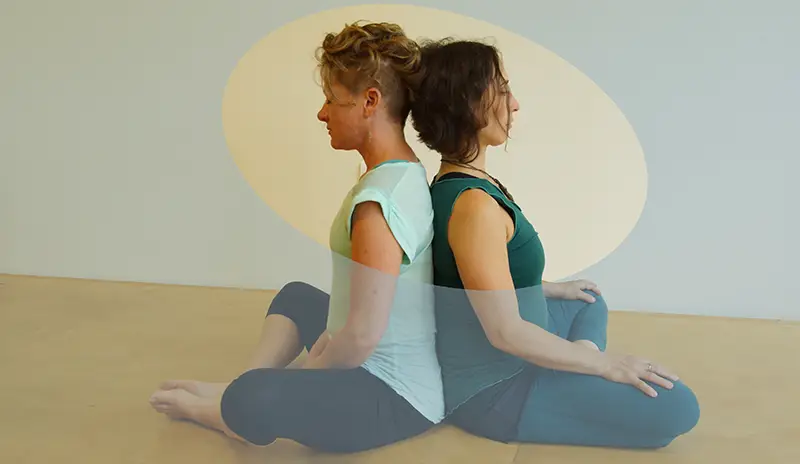Body Up Co-regulation depends on Embodiment because we do it body-to-body. Regulation from the body up uses the body to influence, and effect change at the nervous system level. The pathway we are exercising is from the body up towards the NS/brainstem and brain. (Primarily the afferent fibers of the vagus nerve.)
A simple definition of embodiment is: being alive, in a body and sensing that body. How do we notice that we are in our bodies? All our senses tell us. Not only the usual, taste, smell, touch, and hearing, but also motion, rhythm, tension, weight, posture, energy level, bodily needs, and desires.
I may be walking along, occupied with my thoughts, and not notice that my knee is aching and to take care of it, I ought to rest or go home. I can go on a walk and be thinking about my divorce or the class I have to teach, or I can walk and take in the pine scent, the birdsong, and the air in my lungs. When I am on the computer and too much in my head, I can forget to eat.
Embodiment or dissociation are not all or nothing. Embodiment is not a goal that one achieves but a direction we can move in. It can shift by degrees, or dramatically, moment to moment. It changes with our conscious choices and unconscious fears.
Embodiment skills can be cultivated.
Here are my 8 main reasons why embodiment is important:
- Reality Checks for Safety: We do reality checks through our bodily senses: seeing, hearing, smelling, feeling, tasting and touching. Top down formulations like memory of the past or assumptions about the future do not give us reliable information about the current situation. We can respond best to current circumstances when we are present enough to track physical and social reality in real time. Being aware of our bodies is essential for assessing threat and safety.
- A Sense of Self: A solid psychological sense of self is grounded in a solid physical sense of self. It is hard to have good relationships if you can not stay connected with your sense of self around other people. So finding home in your core is an essential embodiment skill.
- Connection, Loneliness and Shame: The most reliable way to feel connected comes through our physical senses. Evolution has wired us to be connected and to experience that connection Body Up! I know I am connected when my body smiles or laughs with you, or when tears prick my eyes at hearing about your grief. Believing we are all connected may or may not help with loneliness. The real-time, embodied experience of feeling connected does dissolve shame and loneliness.
- Physical Health: When we sense our bodies, we can take better care of ourselves. Taking better care of ourselves and catching health issues early minimizes suffering and saves us money in medical bills. As Porges writes, “Shifting quickly out of threat responses, once they are not needed, is the key to long-term physical and relational health.” It is in our bodies that we can notice those threat responses and re-regulate.
- Co-Regulation: The most efficient form of regulation is co-regulation (when you can do it.) The most efficient form of co-regulation is body up, nervous system to nervous system, because important communication happens through our physical embodied senses (seeing, hearing, touching, tasting, smelling, sense of weight, and motion, rhythm and mirror neurons). The more engaged we are with our embodied senses, the more co-regulation becomes accessible.
- Internal Blueprint for Oppression: For most of us in the industrial world, our habit is to think of the mind and body separately, and to prioritize what we consider mental activity (rational, logical, intellectual, etc.) over body awareness and experience. When our minds treat our bodies as second-class citizens, we live out of an oppressive. internal blueprint. It means that oppression in our social world seems normal and justifiable.
- Oppression: When we disconnect from our bodies, we can do nasty things to other people without it bothering us. If I am awake in my body (and heart) and I hurt you, I will probably still feel it, even if I turn away. If I am not connected with my body (including my heart), I can forget your pain as soon as I look away or change the subject. Without embodiment, it is easy to misuse power and be oppressive and not even notice. So embodiment helps diminish oppressive behavior and expand our capacity for empathy.
- Peer Relationships: Authentic peer relating requires building trust and safety, both of which we experience through our bodies. If we don’t notice our bodies’ threat signals, our nervous system typically reacts with defensive strategies. We often revert to internal, one up/one down, better-than-worse-than, hierarchical role stances. If we notice our bodily signals of threat and safety, we can negotiate for closeness and boundaries that keep us feeling safe and connected as peers.
It is my observation and long-held belief that embodiment benefits our entire species and the health of the planet. Choosing to practice embodiment skills (be it through movement, mindfulness, co-regulation, etc), will impact your body, your relationships, and our social cultures for the better. So, if you want to feel more alive, safer, more connected with others, and drop oppressive behavior, embodiment matters.
